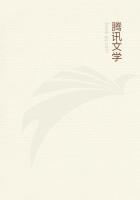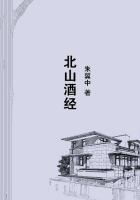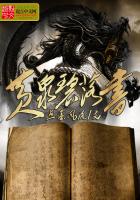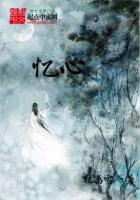The resemblance of these ceremonies to the Indian and European ceremonies which I have described elsewhere is obvious. In particular, apart from the somewhat doubtful date of its celebration, the Alexandrian ceremony is almost identical with the Indian. In both of them the marriage of two divine beings, whose affinity with vegetation seems indicated by the fresh plants with which they are surrounded, is celebrated in effigy, and the effigies are afterwards mourned over and thrown into the water. From the similarity of these customs to each other and to the spring and midsummer customs of modern Europe we should naturally expect that they all admit of a common explanation. Hence, if the explanation which I have adopted of the latter is correct, the ceremony of the death and resurrection of Adonis must also have been a dramatic representation of the decay and revival of plant life. The inference thus based on the resemblance of the customs is confirmed by the following features in the legend and ritual of Adonis. His affinity with vegetation comes out at once in the common story of his birth. He was said to have been born from a myrrh-tree, the bark of which bursting, after a ten months' gestation, allowed the lovely infant to come forth. According to some, a boar rent the bark with his tusk and so opened a passage for the babe. A faint rationalistic colour was given to the legend by saying that his mother was a woman named Myrrh, who had been turned into a myrrh-tree soon after she had conceived the child. The use of myrrh as incense at the festival of Adonis may have given rise to the fable. We have seen that incense was burnt at the corresponding Babylonian rites, just as it was burnt by the idolatrous Hebrews in honour of the Queen of Heaven, who was no other than Astarte. Again, the story that Adonis spent half, or according to others a third, of the year in the lower world and the rest of it in the upper world, is explained most simply and naturally by supposing that he represented vegetation, especially the corn, which lies buried in the earth half the year and reappears above ground the other half.
Certainly of the annual phenomena of nature there is none which suggests so obviously the idea of death and resurrection as the disappearance and reappearance of vegetation in autumn and spring. Adonis has been taken for the sun; but there is nothing in the sun's annual course within the temperate and tropical zones to suggest that he is dead for half or a third of the year and alive for the other half or two-thirds. He might, indeed, be conceived as weakened in winter, but dead he could not be thought to be; his daily reappearance contradicts the supposition. Within the Arctic Circle, where the sun annually disappears for a continuous period which varies from twenty-four hours to six months according to the latitude, his yearly death and resurrection would certainly be an obvious idea; but no one except the unfortunate astronomer Bailly has maintained that the Adonis worship came from the Arctic regions. On the other hand, the annual death and revival of vegetation is a conception which readily presents itself to men in every stage of savagery and civilisation; and the vastness of the scale on which this ever-recurring decay and regeneration takes place, together with man's intimate dependence on it for subsistence, combine to render it the most impressive annual occurrence in nature, at least within the temperate zones.
It is no wonder that a phenomenon so important, so striking, and so universal should, by suggesting similar ideas, have given rise to similar rites in many lands. We may, therefore, accept as probable an explanation of the Adonis worship which accords so well with the facts of nature and with the analogy of similar rites in other lands. Moreover, the explanation is countenanced by a considerable body of opinion amongst the ancients themselves, who again and again interpreted the dying and reviving god as the reaped and sprouting grain.
The character of Tammuz or Adonis as a corn-spirit comes out plainly in an account of his festival given by an Arabic writer of the tenth century. In describing the rites and sacrifices observed at the different seasons of the year by the heathen Syrians of Harran, he says: Tammuz (July). In the middle of this month is the festival of el-B?gat, that is, of the weeping women, and this is the Ta-uz festival, which is celebrated in honour of the god Ta-uz.
The women bewail him, because his lord slew him so cruelly, ground his bones in a mill, and then scattered them to the wind. The women (during this festival) eat nothing which has been ground in a mill, but limit their diet to steeped wheat, sweet vetches, dates, raisins, and the like. Ta-uz, who is no other than Tammuz, is here like Burns's John Barleycorn:
They wasted o'er a scorching flame The marrow of his bones;
But a miller us'd him worst of all For he crush'd him between two stones.


